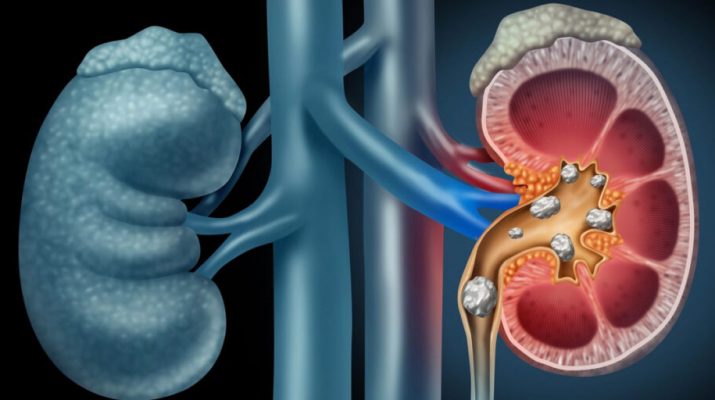One might think indications of issues related to Kidneys would be obvious. Kidney stones are common and subtle, making the body vulnerable. It is crucial to recognise signs that your kidneys could be at increased risk of severe problems down the road.
If you’ve heard about the excruciating pain during kidney stones, unfortunately, the rumours are true. Here is hoping that you find the following information about kidney stones exciting also that it never personally comes in handy for you.
What is a Kidney Stone?
Kidney stones look like tiny pebbles that can vary in colour, texture, and size. Usually, they are small, between a grain of sand to a pea. In rare scenarios, they can even reach the size of a golf ball.
Kidney stones are made of minerals typically found in the urine, like calcium, oxalate, and phosphorus. The accumulation and crystallisation of these minerals form kidney stones.
Kidney Stone Symptoms
It is possible that you have a kidney stone and never know. That is often the case with tiny kidney stones, which can pass undetected out of the body; of course, kidney stone symptoms can also be uncomfortable. If you continuously experience any of these indications of kidney stones, consult a doctor to figure out what you are dealing with and treat them. Some common symptoms are:
- Acute pain in the sides and below the ribs
The infamous pain usually begins when the stone dislodges from the kidney and enters the ureter. If the stone in the ureter is big enough, it might cause the urine to circulate back into the kidney, inducing an immense amount of pain and may cause swelling in the kidneys.
- Pain in the abdomen or groin
The pain nearby the kidney may spread down into the abdominal or groin area as the pain shifts locations moving down the urinary tract.
- Nausea and vomiting
People in severe pain because of kidney stones get a nauseating feeling. That might vomit, too. Naturally, it makes the pain and other kidney stone symptoms appear more dismal.
- Fever and chills
This indicates you might also have an infection. Stones also develop as a result of a urinary tract infection. When an infection spreads to the kidney, fever is a common symptom.
- Cloudy or foul-smelling urine
These are also signs of a kidney infection and might show symptoms of kidney stones depending on precisely what’s going on.
- Red, brown or pink urine
This indicates blood in the urine — the kidney stone grazing the blood vessels in the tissue along the urinary tract. Often, the volume of blood is so slight that a urinalysis would only pick it up.
- Urinating a small amount at a time or frequently
Certain urinary sensations occur when the stone obstructs urine flow or is sitting in the bladder and irritating it. This might make it confusing to know what you’re dealing with since these issues can also be signs of other health conditions.
How to Prevent Kidney Stones?
Preventing future kidney stones depends on you and your medical history. Prevention strategies involve drinking plenty of water, making dietary changes like reducing salt or animal protein intake or taking various medications to help moderate the levels of certain minerals in your urine.
What to do if you have Kidney Stones?
If symptoms show, a diagnosis will help prepare your treatment plan depending on the type of stone, the location, the cause, and the symptoms experienced.
It is often possible to pass small stones with sufficient hydration and pain medications to numb the feeling. Larger stones blocking your urinary tract that cause pain might need a procedure to break up or remove the stone. If you notice any symptoms of kidney problems, consult your Urologists.
- The Urologist will in detail discuss your medical history to have a better understanding of your underlying condition.
- The doctor will then perform a detailed physical examination and ask you to undergo imaging tests to correctly diagnose the location and size of your kidney stones properly.
- Along with image tests, the doctor may also ask you to get some blood and urine tests done, to have a detailed insight into the condition of your kidney stones.
There are several techniques available for painless kidney stones treatment. The modern surgical treatments for kidney stones include laparoscopic treatment, laser treatment and shock wave lithotripsy. You can find nearby clinics for kidney stone treatment, where medical coordinators support you during the journey from paperwork to free commutation and admission-discharge process at the hospital.
Also, in a challenging time, your safety is taken care of by thermal screening, social distancing, sanitised clinics and hospital rooms, sterilised surgical equipment and mandatory PPE kits during surgery.


